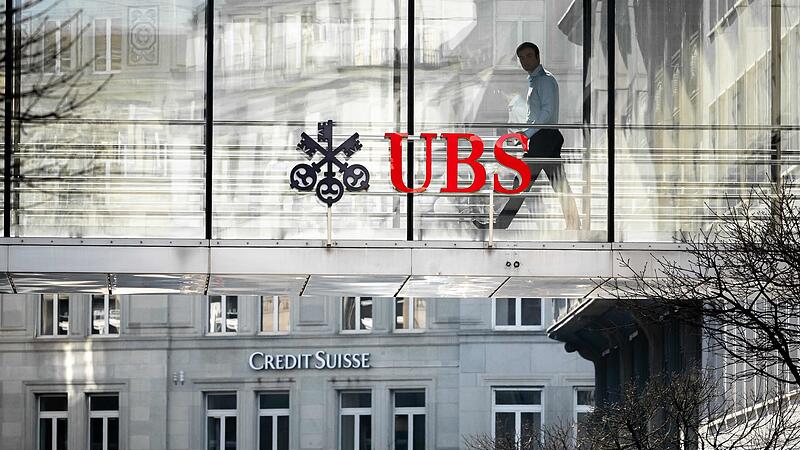Image: FABRICE COFFRINI (APA/AFP/FABRICE COFFRINI)
The major Swiss bank UBS takes over the badly battered rival Credit Suisse (CS).
HOW WAS UBS ESTABLISHED?
UBS itself is a merger product. In 1998, the Swiss Bank Corporation (SBV) and the Union Bank of Switzerland (SBG) merged to form UBS. The roots of the institute go back to the year 1862. Since then, more than 370 private banks, savings banks, asset managers, brokers and commercial banks have been integrated. During the 2008 financial crisis, the institute had to be rescued by the Swiss National Bank (SNB) and the country’s government. After that, she evaporated the risky investment banking and focused primarily on the business with millionaires and billionaires. In 2021, however, the bank lost hundreds of millions of dollars again in the course of the Archegos collapse. The bank also made negative headlines with legal cases for aiding and abetting tax evasion, such as in France and the USA.
WHAT DOES UBS DO?
UBS is one of the world’s largest wealth managers for wealthy individuals. Along with Credit Suisse, it will become the global number two in the business, behind US-based Morgan Stanley, with $3.4 trillion in assets. In addition, like Credit Suisse, it operates a large private and corporate customer business in its home market. Together they will be the clear number one ahead of Raiffeisen with customer deposits of CHF 333 billion (EUR 338 billion) and a loan volume of CHF 307 billion. In asset management for professional customers such as pension funds, the merged bank with fixed assets of 1.5 trillion dollars has risen to become one of the leading banks in Europe. The fourth business area is investment banking with trading and advising companies, for example on business combinations. Credit Suisse’s trading business, which caused the institute billions in losses, is being wound up.
WHAT DOES THE UBS DEAL BRING?
Thanks to the economies of scale, UBS should be able to reduce costs and expand its offering. In the growth market of Asia, number one UBS and number two in business with the rich and super-rich are merging. UBS is particularly strong in Southeast Asia thanks to the acquisition. In the second growth market, the United States, UBS’s clout in business with the ultra-rich is increasing. From 2027, the deal should have a positive impact on earnings per share. In 2022, UBS made a profit of $7.6 billion, its best result in 16 years. Credit Suisse, on the other hand, suffered a loss of CHF 7.3 billion.
HOW BIG IS THE NEW UBS?
Together, UBS and Credit Suisse currently have around 120,000 employees. According to an insider, at least 10,000 jobs are likely to be cut, especially at Credit Suisse. The combined balance sheet total of $1.7 trillion is more than double Switzerland’s gross domestic product (GDP), according to analysts at Citi. This actually runs counter to Switzerland’s interests, because rescuing this giant could be beyond the country’s powers. Credit Suisse and UBS are already two of the 30 banks worldwide whose failure could affect the entire financial system.
ARE THERE OTHER RISKS OF THE DEAL?
“Various imponderables result from the complexity of the transaction,” explained ZKB analyst Michael Klien. These included implementation risks and cultural conflicts. Customers who have accounts with both banks and want to spread their risks could also withdraw some of their money. There could also be legal disputes. “This deal will inevitably provoke legal and political resistance,” said Octavio Marenzi, head of financial consultancy Opimas. The Swiss government used emergency powers to enforce the merger. “Legal challenge by Credit Suisse shareholders, who see their property as unlawfully confiscated, is guaranteed.”
WHO RUNS UBS?
The previous UBS helmsmen, Chairman of the Board of Directors Colm Kelleher and CEO Ralph Hamers, will remain at the helm. Kelleher has denied speculation that the two have any conflicts in the past. In addition, the media recently raised the question of whether the crisis-hardened former Morgan Stanley CFO Kelleher might be better suited for the CEO post than retail banker and digitization expert Hamers.
Source: Nachrichten




